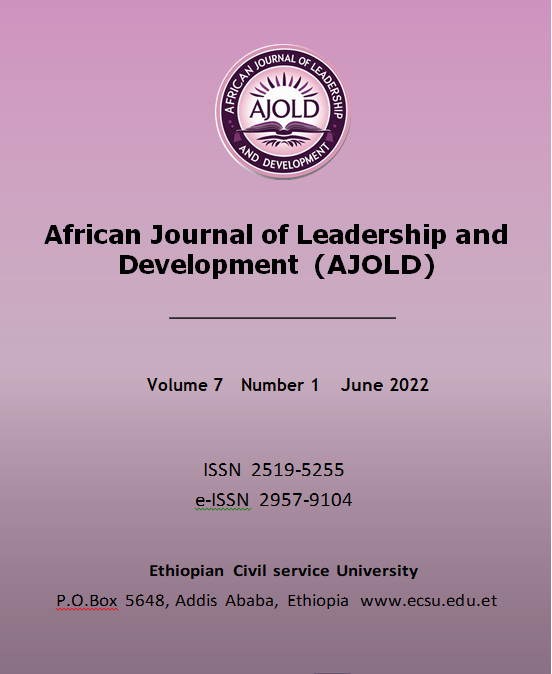Practice, challenges and opportunities of social enterprises in Ethiopia: A case study of member organizations of Social Enterprise Ethiopia Association
DOI:
https://doi.org/10.63990/2022ajoldvol7iss1pp107-125%20Keywords:
Social enterprises, Ethiopia, Regulatory environment, Access to finance, Qualitative, Research, Sustainable development, Hybrid organizationsAbstract
This qualitative study examines the operational practices, issues, and prospects of social enterprises (SEs) in Ethiopia, with particular emphasis on the member organizations of the Social Enterprise Ethiopia Association (SEE). Findings indicate the existence of a vibrant and heterogeneous sector that uses innovative and sustainable business models to meet core social needs in education, healthcare, agriculture, environmental conservation, and financial services. Social enterprises (SEs) face a myriad of challenges, including a complicated regulatory gap, lack of funding options, bureaucratic barriers, and lack of expertise and awareness. The recent recognition of social enterprises (SEs) by the government, coupled with recent opportunities in technology, public procurement, and alignment with national development strategies, offer promising avenues for growth. The study suggests that to enable the sector's possibility of spearheading Ethiopia's inclusive economic growth, sustainable development, and social integration, there is a dire need to strengthen regulatory policies, improve funding availability, build public-private collaborations, and enhance capacity building.
Downloads
Published
How to Cite
Issue
Section
License
This work is licensed under a Creative Commons Attribution-NonCommercial 4.0 International License






